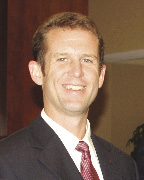It occurred to me over Labor Day weekend that summer was unofficially over and that I needed to put fond summer memories behind me to refocus on business. For some reason, August tends to transform some of the most disciplined, productive people I know into west coast coffee baristas who seemingly exist without either a sense of urgency or passion for their craft. Obviously everyone deserves to relax and recharge, but when compared to other months August takes on a completely different feel. Fortunately for the hotel business, some of these August "slackers" rented hotel rooms and helped the lodging sector continue its steady crawl out of the recession.
Industry Forecasts - Year End (YE) 2011 and 2012
As we move into the fourth quarter, it is time to reflect on how we did and where we believe the industry is headed in the coming years. During the first week of September, I was a panelist at the Smith Travel Research (STR) Data Conference and heard the latest industry forecasts from STR and other industry leaders.
Jan Frietag from STR presented a variety of data points, both positive and negative, regarding the state of the lodging industry. On the positive side, US hotels rented a record 638 million rooms from January through June of this year and set a new July record by selling 106 million rooms. The healthiest sub-markets in the country included airport properties at 73.4% occupancy and urban and resort properties reporting 74.4% occupancy through July of this year. In addition, new supply continued to stay flat to non-existent with only .4% new rooms added to inventory. To put this in perspective, the average growth in supply over the last 20-25 years is 2%.
Although the occupancy figures are positive, average daily rate (ADR) continues to lag. Starting in September of 2008 through April 2010 (the recession's low point) ADR decreased 10% in the US hotel industry. As we came out of the recession ADR grew only 4.9% over the next 19 months. The question moving forward is whether or not hotel operators will drive revenue per available room (RevPar) growth through ADR. If so, more profitable days await.
Trends - Renovations and
Capital Improvements
I served on a panel focusing on the increased volume of owners and investors renovating, repositioning and, in some cases, reflagging their own hotels while also looking for acquisition opportunities that require a substantial capital improvement. During the recession owners were neither financially able nor willing to invest money in their hotels. In response, most brands provided financial flexibility to franchisees by allowing then to defer non-essential capital improvements 12-36 months.
As the industry continues to improve, brands are now instituting strict deadlines for over-due renovations and brand mandated upgrades. This is forcing owners to decide whether to invest more money into their hotels or sell them to a new owner who is willing to renovate to the new standard.
Transaction Activity -
What Lies Ahead?
After a fairly active year for transactions in 2011, acquisitions through July were down roughly 50% while cap rates compressed from 10.5% to 9.25%. A panel focusing on hotel values and transactions blamed the significant gap between the "bid and ask", meaning the difference between what the prospective buyer is willing to pay for the property versus the price the owner is willing to accept. However, they are also seeing a significant increase in the number of hotel loans in default being turned over to servicers, and in turn, servicers being motivated to sell the properties within 9-12 months. Generally speaking, the panelists remained optimistic an increasing number of high quality hotel acquisition opportunities will be available to purchase within 12 months.
Summary
When compared to other real estate asset classes, the hotel industry is able to recover fairly quickly from economic downturns due to its "one day" customer leases. However, "black swan" events like terrorism, warfare or stock market crashes cause immediate and devastating losses. That said, by focusing on the events we control as owners and operators including, but not limited to, customer service, maintaining properties in first class condition, revenue management and expense controls, we remain confident that hotels will continue to provide excellent investment opportunities. Now that the care free days of August are behind us, we look forward to a successful fourth quarter.
David Roedel is partner at Roedel Companies, LLC. As a partner at Roedel Companies, he is accountable for meeting or exceeding the companies' annual and three year strategic plans.
Specifically, he is responsible for real estate development including hotel acquisitions and development and implementing a marketing and public relations strategy which supports its growth and revenue goals.
Tags:
Moving into the fourth quarter, time to reflect on how we did and where we are going
September 20, 2012 - Front Section









